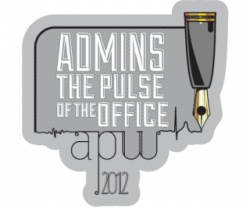 Just in time for Administrative Professionals Day, CompData says salaries for executive assistants, admins, and other office support staff are inching up.
Just in time for Administrative Professionals Day, CompData says salaries for executive assistants, admins, and other office support staff are inching up.
After years of stagnant pay, CompData’s BenchmarkPro survey found wages up on the order of 2 percent. Executive assistants, among the highest paid, now average $51,600 per year, up from $50,200 in 2010. Executive secretaries saw a 2.4 percent rise: $45,000 in 2010 to $46,100 in 2011. Receptionists increased 2.6 percent between 2010 and 2011, to $27,900.
“Although salaries for many administrative professionals increased in 2011, the rate of increase for most of these jobs was less than the 2011 average rate of inflation reported in the Consumer Price Index of 3.2 percent,” said Amy Kaminski, director of marketing for Compdata Surveys, a pay and benefits survey data provider.
That may be a reason why office support positions are becoming increasingly harder to fill. Wanted Technologies says jobs for receptionists and executive assistants made the top 50 most-advertised jobs list last month.
You take that into consideration tomorrow, when deciding how to say thank you to your office admins. In case you missed it, April 25 is Administrative Professionals Day in the U.S., Canada, and elsewhere.
http://www.youtube.com/watch?v=HA5BHa0Get4&feature=player_embedded
With 13 million office support staff at work in the U.S. alone, it has become a big day for florists and restaurants, who benefit from the feting by bosses and office workers. As hard as it may be for anyone caught in one of those endless automated phone trees to believe, there are more office workers now than at any time in the past. The International Association of Administrative Professionals says there are more than 4.1 million secretaries and administrative assistants, and 8.9 million people in administrative support roles.
What began 60 years ago as a way of recognizing secretaries and building interest in the job has morphed into an appreciation of the professionalization of the industry.
Over the six decades the nature of the job has changed dramatically, as has the name of the observance. When it launched in 1952, it was National Secretaries Day. In 1981, the named was changed to Administrative Professionals Day. Once almost exclusively a woman’s job, today it is not at all uncommon to find men in admin positions. Few had any college 60 years ago. Now the typical admin has at least an associate’s degree.
And where once clerical tasks were the primary part of the job, now support staffs produce reports and spreadsheets full of data, create presentations, participate in project teams, handle most office purchases, and make decisions in the absence of managers.
What the modern event has in common with the past is the hope that by recognizing the importance and value of office support staff, it will kindle interest in the job and help recruit new workers. In large part that was behind the plan that Mary Barrett, president of the National Secretaries Association, now called the International Association of Administrative Professionals, and C. King Woodbridge, president of Dictaphone Corporation, came up with in 1952. Together with the help of PR exec Harry Klemfuss they established the first National Secretaries Week.
If you doubt the value of the work, you figure out how to unjam the copier, soothe an upset client, or recover the nearly completed project that just disappeared from your computer.
That’s why at offices all across the country, administrative professionals will be showered with cards, flowers, and balloon bouquets. Bosses will lunch with their admins. And office workers will show their appreciation with lunchroom potlucks or pizzas.
OfficeTeam, Robert Half’s administrative staffing group, offers a tip sheet for other ways of recognizing office support workers. (And a series of videos about the wrong way to celebrate the day.)
However your workplace recognizes the support staff, make sure that at the very least, you go out of your way to say a personal “Thank you.”